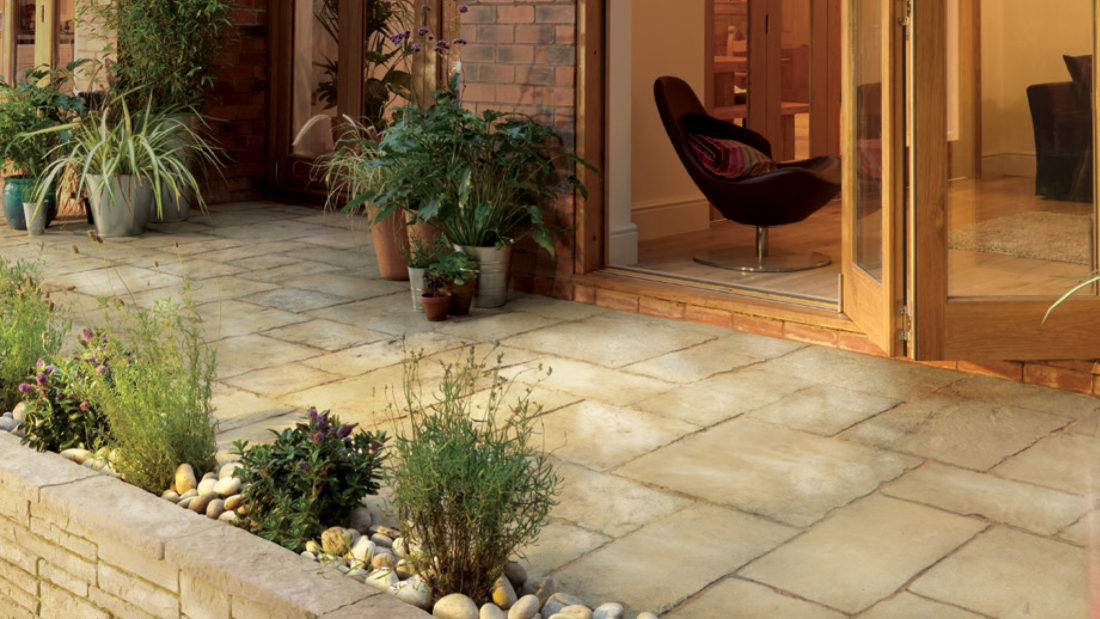Sustainable Stone:
Exploring Eco-Friendly Stone Options for Your Home

Are you looking to make your home more environmentally friendly? One way to do so is by incorporating sustainable stone options into your design.
By choosing sustainable stone options for your home, you can make environmentally conscious choices that have a lasting impact.
Choose eco-friendly stone options that align with your design preferences and contribute to a more sustainable lifestyle.
The Environmental Impact of Natural Stone
Natural stone is a sustainable building material with significant environmental benefits. It's made without synthetic ingredients or toxic chemicals, making it safe for both people and the environment.
Stones that are sourced regionally or locally have a lower environmental impact because they don't need to be transported over long distances.
Advancements in quarrying and fabrication technology have made natural stones more accessible and attractive. The stone industry is committed to being eco-friendly by conserving resources, preventing pollution, and minimizing waste.
Recyclability and Sustainability of Stone
Stone is a versatile and sustainable material for your home. It can be recycled and reused, reducing the need for new materials. Recycling stone not only extends its useful life but also saves energy, water, and resources that are used in the production process.
When you choose recycled stone, you have a wide range of options for its use. It can be reformed or polished to fit different applications. By recycling stone, you play a part in reducing harmful impacts on ecosystems and preserving valuable resources.
In addition to recycling, selecting durable stone materials can help conserve resources. When you opt for long-lasting stones, you minimize the need for frequent replacements. This, in turn, reduces the consumption of materials over time.
The stone industry is committed to being eco-friendly by conserving resources, preventing pollution, and minimizing waste. By considering these options, you can ensure that the stone in your home is recyclable and sustainable.
Eco-Friendly Stone Countertop Options
Looking for eco-friendly stone countertop options? Consider Silestone, Quartz, and natural stone.
Silestone is an excellent choice as it's made from 75% recycled materials like mirror glass and porcelain. It's extracted and manufactured in an environmentally friendly way.
Quartz countertops are another eco-friendly option. They're composed of crushed natural stone bound together with epoxy resin, making them more environmentally friendly compared to other materials.
If you prefer a completely natural option, go for natural stone countertops like marble, limestone, and granite. These countertops are made entirely of natural materials and offer a durable and long-lasting surface.
Not only do these eco-friendly stone countertops look sleek and attractive, but they're also made from sustainable materials that don't harm the environment.
Cost is also a consideration. Make sure the eco-friendly stone countertop you choose fits within your budget. Compare prices and options to find the best value for your money. Work with professionals like StoneProtection.com.au to make sure they are properly installed.
Lastly, pay attention to the manufacturing process of the stone countertops. Look for ones that are made using sustainable and eco-friendly practices. This way, you can feel good about your choice knowing that it was made with the environment in mind.
Conclusion
Adding sustainable stone options to your home design can make your living space more environmentally friendly.
You have several options for eco-friendly stone countertops, including Silestone, Quartz, and natural stone. These countertops not only look sleek but also minimize harm to the environment.
They're durable, long-lasting, and made using environmentally friendly processes.
So, by choosing these sustainable stone options, you can enhance your home's beauty and value while contributing to a greener and more sustainable future.
FAQs
Q: What is the most eco-friendly stone?
The most eco-friendly stone is typically considered to be limestone, as it is abundant and has a low carbon footprint during production.
Q: What is a sustainable alternative to stone?
A sustainable alternative to stone can be materials like bamboo, rammed earth, or compressed earth blocks, which are renewable resources and have minimal environmental impact.
Q: Are stone houses eco-friendly?
TStone houses can be eco-friendly if they are built with locally sourced and responsibly quarried stone, utilize energy-efficient design and systems, and incorporate sustainable building practices.
Q: What is the best natural building stone?
The best natural building stone depends on the specific project requirements, aesthetic preferences, and regional availability. Common options include granite, limestone, sandstone, and marble.
Q: Is quartz or granite more sustainable?
The most eco-friendly stone is typically considered to be limestone, as it is abundant and has a low carbon footprint during production.
Q: Is quartz more environmentally friendly than granite?
In general, quartz is considered to be more environmentally friendly than granite due to its lower carbon footprint during production and its potential to be recycled. However, it ultimately depends on the specific circumstances and suppliers involved.